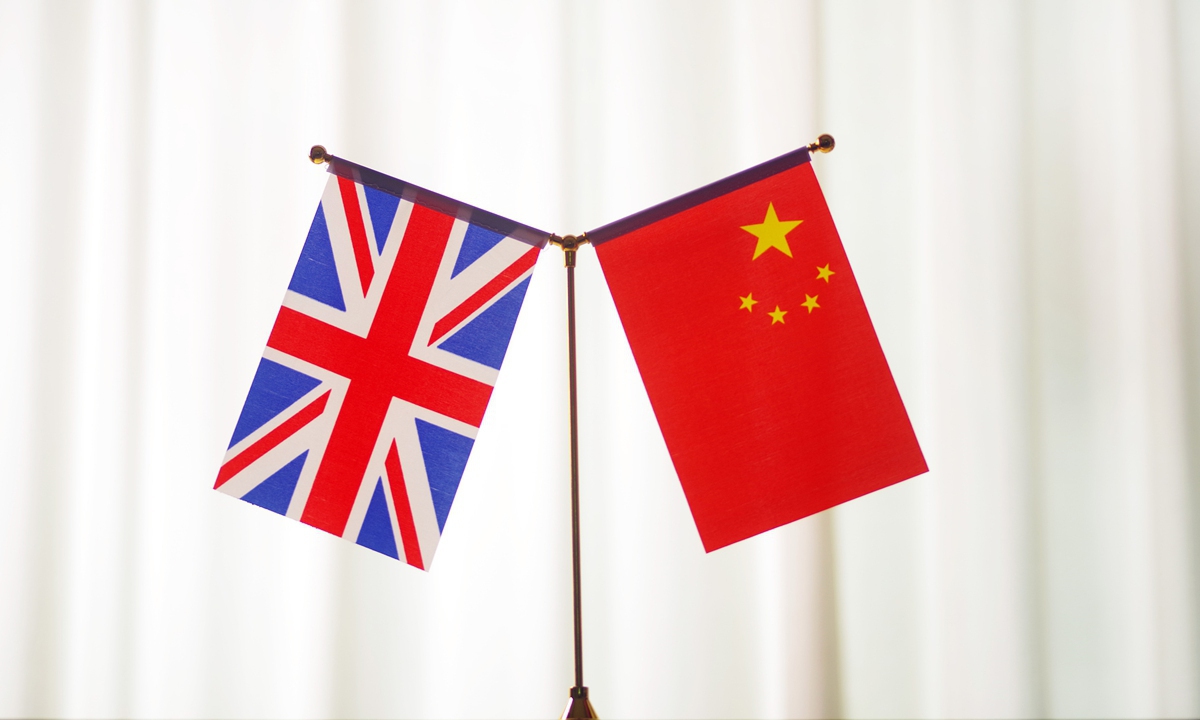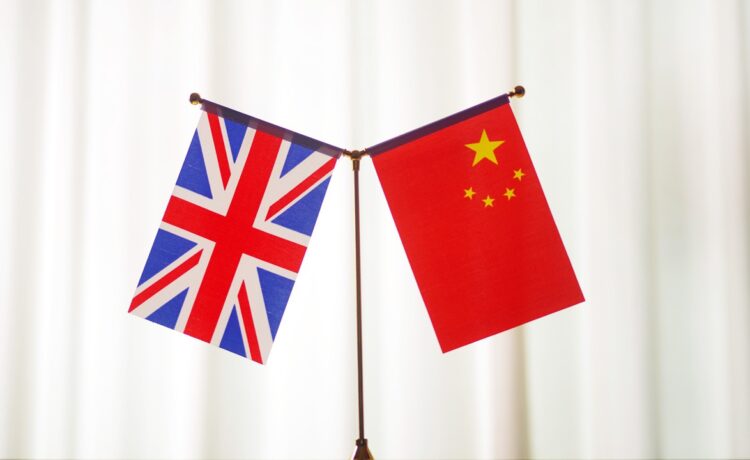
China UK Photo: VCG
The UK’s new business secretary, Peter Kyle, will fly to China this week as part of delivering secure economic growth with one of the world’s largest economies, according to the UK Department for Business and Trade.
A Chinese expert said the visit underscores London’s recognition of China’s role as a key partner and reflects both sides’ interest in steering economic cooperation toward a more stable and pragmatic direction amid geographical uncertainties.
The Business and Trade Secretary is flying to Washington on Sunday evening to meet White House senior advisors, and after full day of meetings, the Secretary of State will fly directly to China, according to a statement by UK Department for Business and Trade. The Chinese side has yet to confirm the visit.
The Guardian also reported on Sunday Kyle will fly to Beijing this week as part of Prime Minister Keir Starmer’s ongoing push to revitalize trade ties with China and boost the British economy.
The former science and technology secretary, who was promoted in Friday’s government reshuffle, is expected to land in China on Wednesday, picking up the schedule of his predecessor, Jonathan Reynolds, who is now the chief whip, per the report.
Kyle was due to fly to Washington on Sunday evening as part of the preparations for Donald Trump’s state visit to the UK and then meet in Beijing with the Chinese minister of commerce, Wang Wentao, at the first gathering of the UK China joint economic and trade commission (Jetco) for seven years, according to the report.
Kyle is the latest in a series of senior UK cabinet ministers to visit China since Labour took office last year, following Chancellor Rachel Reeves in January and Deputy Prime Minister David Lammy last October, when he travelled in his previous role as foreign secretary, the Guardian reported.
“If the scheduled visit materializes, it would reflect the UK values trade relations with China amid rising protectionism and complex geographical landscape. Since Brexit, the UK has been seeking new trade agreements worldwide, with China naturally among its most important partners,” Zhou Mi, a senior research fellow at the Chinese Academy of International Trade and Economic Cooperation, told the Global Times on Monday. “Such a visit would not only be about building trust as the new business secretary takes office, but also about steering China-UK cooperation toward greater stability and sustainability.”
He noted that the reported visit would echo the strong complementarities of China-UK economic ties. “The two economies are closely linked in areas from manufacturing to finance, and even in R&D. The hope is that this visit could go beyond symbolism and identify concrete opportunities that meet market needs,” Zhou said.
Zhou added that, should the visit take place, it would also come against the backdrop of London’s domestic pressures. “The UK’s new reciprocal tariff deal with the US has kept tariffs higher than before, adding strain on domestic industries. This makes it all the more urgent for Britain to open new markets, and China offers strong potential through its complementary ties with the UK,” he said.
The complementary trade ties can also find its evidence in the ongoing 25th China International Fair for Investment & Trade (CIFIT), held in Xiamen, East China’s Fujian Province, from Monday to Thursday, at which the UK is the guest country of honor. At a press conference on August 26, Vice Minister of Commerce Ling Ji described economic and trade cooperation as the “ballast stone” of China-UK relations. Britain is now China’s second-largest destination for direct investment in Europe and its third-largest source of foreign investment from the region.
“In the ongoing investment fair, China-UK cooperation should focus on several priorities,” Zhou said. “Both sides need to strengthen institutional guarantees, as some of UK actions against Chinese investment have undermined earlier commitments and created uncertainty for businesses.
In April, the British Parliament passed an emergency law granting the government sweeping powers to take control of British Steel, which had been under Chinese ownership since 2020, the last producer in the UK capable of making steel from iron ore.
On this matter, Chinese Foreign Ministry spokesperson Lin Jian in April urged the British government to treat Chinese companies investing and operating in the UK in a fair and just manner, protect their legitimate rights and interests, and refrain from turning economic and trade cooperation into political and security issues, lest it should undermine the confidence of Chinese companies in their normal investment and operation in the UK.
Zhou added that in the future, China-UK investment should aim to build greater resilience in supply chains amid global restructuring, giving companies more stable expectations to expand two-way flows. At the same time, enterprises should be encouraged to invest more in emerging fields such as artificial intelligence to tap new growth potential.”
In 2024, China-UK trade in goods and services exceeded $130 billion, averaging $360 million a day. By July 2025, the UK’s cumulative actual investment in China had surpassed $35 billion, while China’s direct investment stock in the UK exceeded $32 billion. More than 13,000 British companies have established operations in China, highlighting the depth and vitality of bilateral cooperation, Ling said.
Global Times


